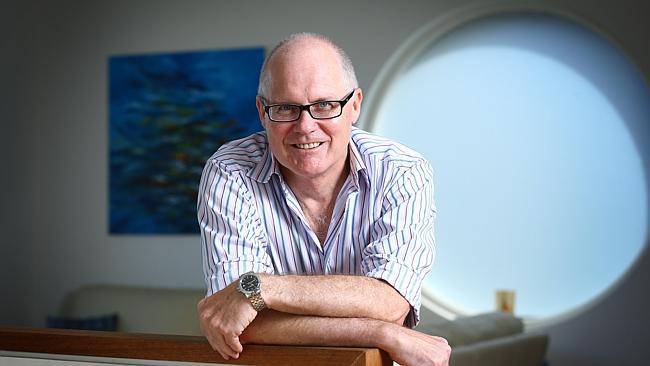Virgin hires ex-Nine CFO Simon Kelly for its capital review
Virgin Australia has hired former Nine Entertainment executive Simon Kelly to work on its capital structure review.

Virgin Australia has drafted in former Nine Entertainment chief financial officer Simon Kelly to work on its capital structure review, as major shareholder Air New Zealand seeks to offload its $330 million stake in the airline.
Mr Kelly left the free-to-air television and digital group at the end of February after serving as CFO and chief operating officer for four years.
Virgin announced the capital structure review last month as its four major shareholders — Air NZ, Etihad Airways, Singapore Airlines and Virgin Group — agreed to a 12-month, $425m loan to provide balance sheet flexibility throughout the process.
The review is focused on cutting debt and optimising the company’s capital structure to support its long-term strategy to rebuild the Virgin brand to better compete with Qantas.
It is understood Mr Kelly was involved in the negotiations with Virgin’s shareholders about the unsecured loan. He will remain at Virgin until the review is completed, which is expected to take a number of months, with no plans in place for a permanent role.
Mr Kelly is constrained from working for media companies by a non-compete agreement. Virgin is considering several options under the review including the issuance of new shares to existing or new strategic investors, and asset sales.
One saleable asset is Virgin’s majority stake in its Velocity loyalty business, but the airline would be reluctant to jettison the business given its strong earnings growth and reliable revenue streams.
Air NZ chief executive Christopher Luxon resigned from the Virgin board last month after Air NZ said it was reviewing its shareholding in the local airline.
Singapore Airlines, which owns 23.11 per cent of Virgin, has been touted as a potential buyer of the Air NZ stake but would require Foreign Investment Review Board approval to boost its interest. Sources said Virgin approached Mr Kelly largely due to his experience working on a raft of complex transactions at Nine.
He was involved in the company’s near-death debt-for-equity restructure in 2012, initial public offering in 20 13, the $640m sale of its Ticketek business to Affinity Equity Partners in April, and a number of premium sports rights deals, including the broadcaster’s recent $625m NRL agreement.
Affinity bought 35 per cent of Virgin’s Velocity frequent-flyer program for $336m in 2014.
The Asian-based private equity firm was attracted to the data sets and capabilities of Ticketek and Velocity and planned to take advantage of synergies between the two businesses.
Mr Kelly joined the board of gaming services firm Intecq last month, reuniting with chairman Paul Oneile.
Mr Oneile was chief executive at Aristocrat while Mr Kelly was the poker machine manufacturer’s chief financial officer.
The need to review Virgin’s capital structure came after an intense period of transformation for the company, which has cast off its low-cost carrier facade to implement a full-service, two-class airline with upgraded product and lounges in direct competition with Qantas.
That transformation helped underpin a strong half-year result for Virgin in February when chief executive John Borghetti said the airline was on track to post a profit for the 2016 financial year and deliver a return on invested capital in line with its cost of capital.
However, analysts have not been thrilled with Virgin’s result and warned weakness in its operating cash flow, which came in at $10m at December 31, from $65m a year earlier, needed to rebound in the second half if the airline was to stay on track for a strong full-year profit. The last time Virgin raised equity from its shareholders, in late 2013, its total cash balances were below $600m as the bloody capacity war with Qantas took its toll.



To join the conversation, please log in. Don't have an account? Register
Join the conversation, you are commenting as Logout